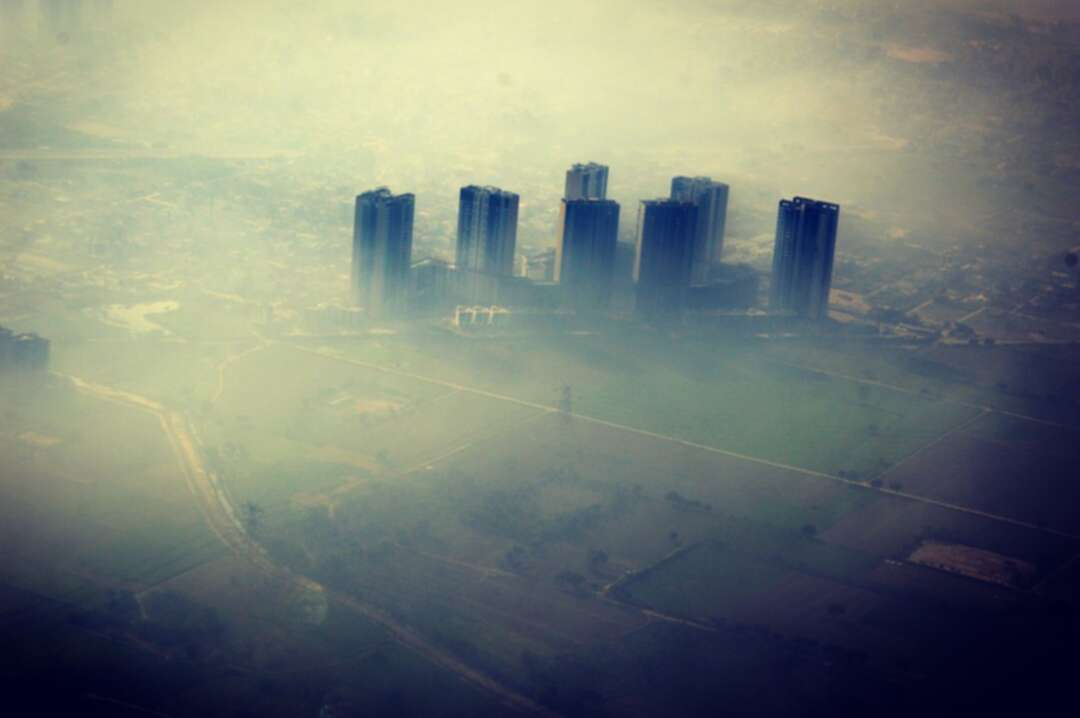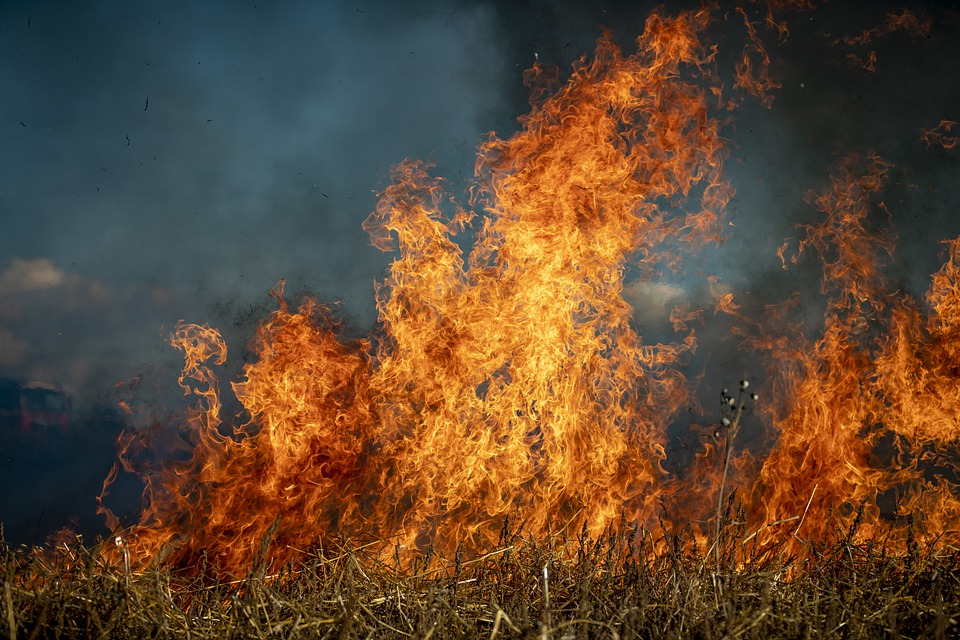-
India's capital Delhi records its worst November air in at least six years

The BBC reported according to official Indian data, India's capital Delhi recorded its worst November air in at least six years.
The city recorded 11 days of "severe" pollution, up from 10 days in November 2016.
Data also showed that the residents of Delhi didn't experience even one "good" day of air quality through the month.
Experts blame the burning of crop stubble in neighbouring states and the festival of Diwali for the alarming levels of pollution in November.
The numbers are the worst Delhi has seen since 2015, when the Central Pollution Control Board started recording air quality data.
 Field burning/Pixabay
Field burning/PixabayDr Gufran Beig, founder of air quality forecast agency SAFAR, told local media that a prolonged monsoon pushed the stubble burning and Diwali into November.
Read more: British PM says adults to be offered booster vaccine by end of January
He said: "This is the major reason why November saw poorer air quality this year as compared to the last few years."
Satellite data from Nasa shows that there were 90,984 fires from stubble burning in three states - Punjab, Haryana and Uttar Pradesh - between 1 October and 28 November. This was the highest number in five years, according to a report from the Council on Energy, Environment and Water (CEEW).
Air quality in Delhi had also dipped to hazardous levels the day after Diwali as people defied a ban to burst firecrackers for hours.
Stubble burning - where crop residue is burnt every year to make way for planting wheat - turns the city's air toxic every year. It's banned but enforcement has been weak.
The problem looks set to worsen as the federal government has agreed to decriminalise stubble burning in a bid to assuage protesting farmers at Delhi's borders.
Read more: UN: 37 percent of the world’s population still never used the Internet
The levels of PM2.5 - tiny particles that can clog people's lungs - are far higher in Delhi than the World Health Organization's (WHO) safety limit.
Several studies have warned of the health risks of breathing such toxic air.
Recently, a joint study by the Lung Care Foundation and Pulmocare Research and Education found that exposure to high levels of air pollution can make children obese and put them at greater risk of developing asthma.
The study was the first in India to establish a link between overweight children, asthma and air pollution.
Source: BBC
You May Also Like
Popular Posts
Caricature
BENEFIT Sponsors BuildHer...
- April 23, 2025
BENEFIT, the Kingdom’s innovator and leading company in Fintech and electronic financial transactions service, has sponsored the BuildHer CityHack 2025 Hackathon, a two-day event spearheaded by the College of Engineering and Technology at the Royal University for Women (RUW).
Aimed at secondary school students, the event brought together a distinguished group of academic professionals and technology experts to mentor and inspire young participants.
More than 100 high school students from across the Kingdom of Bahrain took part in the hackathon, which featured an intensive programme of training workshops and hands-on sessions. These activities were tailored to enhance participants’ critical thinking, collaborative problem-solving, and team-building capabilities, while also encouraging the development of practical and sustainable solutions to contemporary challenges using modern technological tools.
BENEFIT’s Chief Executive Mr. Abdulwahed AlJanahi, commented: “Our support for this educational hackathon reflects our long-term strategic vision to nurture the talents of emerging national youth and empower the next generation of accomplished female leaders in technology. By fostering creativity and innovation, we aim to contribute meaningfully to Bahrain’s comprehensive development goals and align with the aspirations outlined in the Kingdom’s Vision 2030—an ambition in which BENEFIT plays a central role.”
Professor Riyadh Yousif Hamzah, President of the Royal University for Women, commented: “This initiative reflects our commitment to advancing women in STEM fields. We're cultivating a generation of creative, solution-driven female leaders who will drive national development. Our partnership with BENEFIT exemplifies the powerful synergy between academia and private sector in supporting educational innovation.”
Hanan Abdulla Hasan, Senior Manager, PR & Communication at BENEFIT, said: “We are honoured to collaborate with RUW in supporting this remarkable technology-focused event. It highlights our commitment to social responsibility, and our ongoing efforts to enhance the digital and innovation capabilities of young Bahraini women and foster their ability to harness technological tools in the service of a smarter, more sustainable future.”
For his part, Dr. Humam ElAgha, Acting Dean of the College of Engineering and Technology at the University, said: “BuildHer CityHack 2025 embodies our hands-on approach to education. By tackling real-world problems through creative thinking and sustainable solutions, we're preparing women to thrive in the knowledge economy – a cornerstone of the University's vision.”
opinion
Report
ads
Newsletter
Subscribe to our mailing list to get the new updates!






















